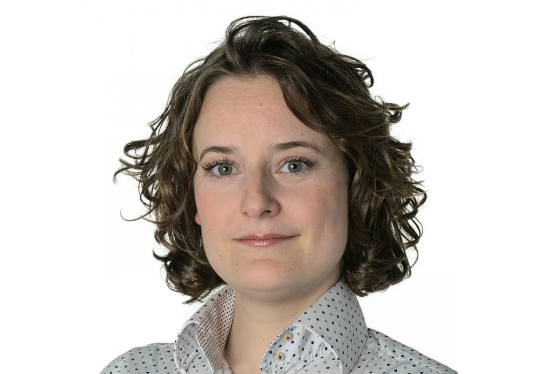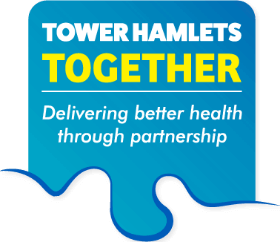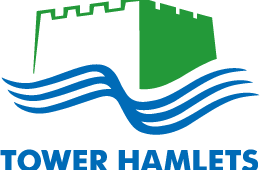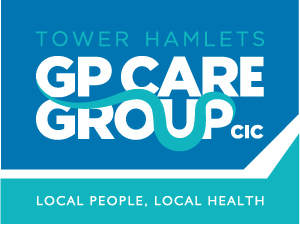Amy's Monthly Briefing - May - June 2023
The borough’s vision of a seamless health and care experience for its citizens.

Here's a double edition of my usual monthly briefing, covering the May and June THT Board meetings. Both had a strong focus on co-production and community intelligence, health inequalities and finances
Here's a double edition of my usual monthly briefing, covering the May and June THT Board meetings. Both had a strong focus on co-production and community intelligence, health inequalities and finances.
In May we heard from REAL, the charity run by and for disabled people, who set THT four challenges for co-production. Their outgoing CEO, Mike Smith, highlighted that while the partnership has done some good work so far, we're not getting the most out of co-production and are generally at the informing, education or consultation end of the ladder of participation, which is still tokenism. In most instances there remains an imbalance of power, knowledge and skills between decision-makers and people who use our services – which active independent facilitation can help overcome.
REAL set us four challenge questions, which we began to work through in the session (via their active independent facilitation!), and we need to report back to the Health and Wellbeing Board on our actions in response:
- Co-production works best in pilots and smaller projects – how can we learn, scale up the learning and make things business as usual?
- How are we going to resource co-production work going forward? Co-design should include planning services, co-decision making in allocation of resources, co-delivery of services including the role of volunteers, and co-evaluation of the service – but we’re not doing this systematically
- How are we going to make decisions about when we use co-production?
- If we want genuine increases in our THT I-Statement results (the co-produced outcomes framework), especially “choice and control”, we need to do things differently – to improve outcomes and get value for money
We developed lots of ideas to work up further, including having protected time for co-production that allows for continuation, a register of co-production that we can learn from, commitment to co-production as one of THT's values – with resource attached and costed up as part of everything we do, and taking responsibility as leaders for the commissioning resource and power we hold, to build co-production into all the work we do, even when conditions in council and NHS drive us to do the opposite. Our Community Voice Lead and engagement team are already doing some of this work, via a series of THT workshops on co-production to develop guidance, which will culminate in a 29 July public meeting and a full report back to the Board in September.
In June, we had a deep dive into GP access. Healthwatch presented intelligence data from 1,418 people on their experiences, which highlighted that people want greater access, communication, empathy, involvement and support. Overall sentiment from the feedback was 40% positive and 58% negative. Overall satisfaction has declined by 10% this quarter and complaints about administration and communications have increased by 20%. Positive areas of feedback include support, quality and staff attitude, while negative areas were booking, waiting lists and access by telephone. Looking at the feedback by locality, network 9 had particularly high positive feedback (55%) and also generally lots of feedback of all kinds, indicating healthy engagement from patients. Some practices received no feedback at all which is an issue. The majority of people reported negative experiences with receptionists, very good experiences with clinicians and relatively good experiences with nurses. Most worryingly, the 18 month tracker is not showing an improvement or increase in positive comments. The Board asked for an ethnicity breakdown of the feedback and also a comparison with 3 years ago and with other boroughs. Our Board Primary Care Lead is also taking the report to the primary care development group to look at the variation between PCNs and practices.
NEL also reported on the national and ICB-level initiatives being taken forward to address primary care access issues, which are exacerbated by rapid population growth and a highly mobile population, meaning a high turnover of patients. A core target is patients being offered assessment or signposted at point of contact, with an appointment within 2 weeks - with a portion of PCN funding attached to achievement of certain metrics. We discussed the urgent need for a partnership communications drive to engage with residents and build trust with the wider primary care workforce (i.e. not just seeing a GP), including by harnessing the energy and networks that flourished in the pandemic, such as the Covid Champions and community connectors. We also want to embrace the power of pharmacy services as part of primary care and bring them more into the partnership.
At both Board meetings, we discussed the health inequalities funding being delegated from North East London to all place partnerships. This amounts to £833,000 for Tower Hamlets in total - £500k per place plus an extra £333k weighted by a health inequalities formula. THT's Operational Management Group has been liaising with the lifecourse workstreams to determine the criteria and process for allocating funds. The Board gave a steer at both meetings that we are keen to maximise the impact of this funding - so principles include not using it to "plug gaps" in statutory services run by large organisations, working out an equitable split between lifecourses that relates to both the NHS CORE25PLUS clinical areas of needs and locally set partnership priorities - and ring-fencing a substantial amount for the voluntary sector who are rooted in the communities we most need to reach. The final process will be agreed at the July Board.
At both Board meetings, we also considered the implications of the 30% reduction in NEL ICB running costs and the implications for local clinical leadership roles. THT is actively identifying options for local funding to sustain the team of multi-disciplinary clinical leads we have in place to support transformation and deeper integration.
In May, we also considered the Better Care Fund 2023-25, which is a total pooled fund of £57m and the plan is due by 28 June. This is not new money and we need to deliver against 5 national metrics, including a new one on the number of falls in the community and existing ones on avoidable admissions into hospital, number of discharges to normal place of residence, proportion of over 65 still at home 91 days after leaving hospital and permanent admission to residential and nursing care homes. We had a lively debate about the benefit of putting services into the BCF, which is a vehicle but not the only route to integration. The Board agreed it is timely to look at what is within and outside of the BCF currently, as it has built up incrementally. The BCF offers the opportunity for better joint oversight, joint delivery against joint metrics, financial benefits and improvements in outcomes - so we need to review the overall logic and impact of the schemes we agree to put in and ensure there is robust assurance and financial governance about how the BCF is being spent and monitored.
We also reviewed key NEL developments including the Joint Forward Plan and upcoming Big Conversation with residents. I'm really looking forward to a big focus on children and families, including the special educational needs and disabilities improvement plan and inspection preparation, at the July Board.








